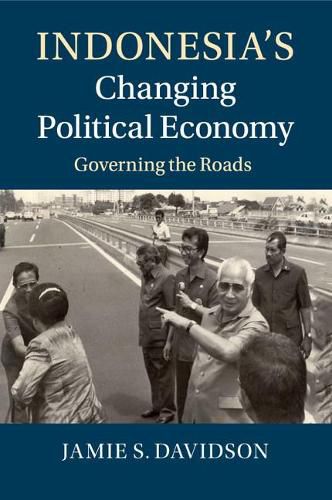Readings Newsletter
Become a Readings Member to make your shopping experience even easier.
Sign in or sign up for free!
You’re not far away from qualifying for FREE standard shipping within Australia
You’ve qualified for FREE standard shipping within Australia
The cart is loading…






Indonesia is Southeast Asia’s largest economy and freest democracy yet vested interests and local politics serve as formidable obstacles to infrastructure reform. In this critical analysis of the politics inhibiting infrastructure investment, Jamie S. Davidson utilizes evidence from his research, press reports and rarely used consultancy studies to challenge mainstream explanations for low investment rates and the sluggish adoption of liberalizing reforms. He argues that obstacles have less to do with weak formal institutions and low fiscal capacities of the state than with entrenched, rent-seeking interests, misaligned central-local government relations, and state-society struggles over land. Using a political-sociological approach, Davidson demonstrates that ‘getting the politics right’ matters as much as getting the prices right or putting the proper institutional safeguards in place for infrastructure development. This innovative account and its conclusions will be of interest to students and scholars of Southeast Asia and policymakers of infrastructure investment and economic growth.
$9.00 standard shipping within Australia
FREE standard shipping within Australia for orders over $100.00
Express & International shipping calculated at checkout
Indonesia is Southeast Asia’s largest economy and freest democracy yet vested interests and local politics serve as formidable obstacles to infrastructure reform. In this critical analysis of the politics inhibiting infrastructure investment, Jamie S. Davidson utilizes evidence from his research, press reports and rarely used consultancy studies to challenge mainstream explanations for low investment rates and the sluggish adoption of liberalizing reforms. He argues that obstacles have less to do with weak formal institutions and low fiscal capacities of the state than with entrenched, rent-seeking interests, misaligned central-local government relations, and state-society struggles over land. Using a political-sociological approach, Davidson demonstrates that ‘getting the politics right’ matters as much as getting the prices right or putting the proper institutional safeguards in place for infrastructure development. This innovative account and its conclusions will be of interest to students and scholars of Southeast Asia and policymakers of infrastructure investment and economic growth.